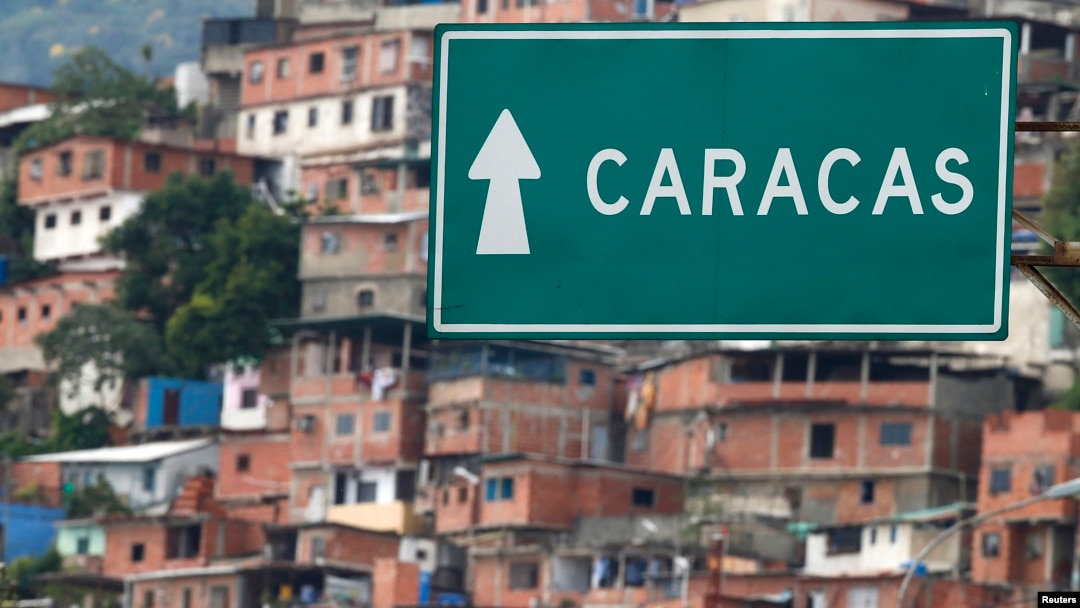Moody's Investors Service downgraded Venezuela's credit rating on Monday and warned it could cut them again given what it saw as the growing risk of an economic and financial collapse in the country.
It was the second ratings downgrade in just a few days for the country after Standard & Poor's cut its bond ratings on the “radicalization” of economic policy and declining international reserves.
President Nicolas Maduro spooked investors last month by forcing retailers to slash the prices of consumer goods as part of an “economic offensive” to rein in annualized inflation of 54 percent, a move critics say will spur shortages down the road.
The populist move helped the ruling Socialist Party, however, to a strong showing in local polls earlier this month that shored up Maduro's political standing.
Moody's said it cut Venezuela's local and foreign currency ratings to Caa1 from B1 and B2, respectively, while the outlook for the rating was negative.
“The downgrade reflects Moody's view that Venezuela is facing increasingly unsustainable macroeconomic imbalances, including a skyrocketing inflation and a sharp depreciation of the parallel exchange rate,” the agency said.
“As government policies have exacerbated these problems, the risk of an economic and financial collapse has greatly increased.”
It cited high inflation, a black market exchange rate 10 times the official level, widespread shortages of goods, a shrinking current account surplus, “perilously” low foreign exchange reserves and “anemic” 1.4 percent growth during the first three quarters of 2014.
“A sharp increase in Venezuela's sovereign yields to more than 15 percent in early December from less than 10 percent in mid-May suggests the country's ability to access markets has been severely curtailed,” it added.
Moody's said the negative outlook reflected its expectation that conditions would continue to deteriorate. However, the outlook could stabilize if macroeconomic imbalances are reduced to levels that do not threaten an economic collapse, it added.
It was the second ratings downgrade in just a few days for the country after Standard & Poor's cut its bond ratings on the “radicalization” of economic policy and declining international reserves.
President Nicolas Maduro spooked investors last month by forcing retailers to slash the prices of consumer goods as part of an “economic offensive” to rein in annualized inflation of 54 percent, a move critics say will spur shortages down the road.
The populist move helped the ruling Socialist Party, however, to a strong showing in local polls earlier this month that shored up Maduro's political standing.
Moody's said it cut Venezuela's local and foreign currency ratings to Caa1 from B1 and B2, respectively, while the outlook for the rating was negative.
“The downgrade reflects Moody's view that Venezuela is facing increasingly unsustainable macroeconomic imbalances, including a skyrocketing inflation and a sharp depreciation of the parallel exchange rate,” the agency said.
“As government policies have exacerbated these problems, the risk of an economic and financial collapse has greatly increased.”
It cited high inflation, a black market exchange rate 10 times the official level, widespread shortages of goods, a shrinking current account surplus, “perilously” low foreign exchange reserves and “anemic” 1.4 percent growth during the first three quarters of 2014.
“A sharp increase in Venezuela's sovereign yields to more than 15 percent in early December from less than 10 percent in mid-May suggests the country's ability to access markets has been severely curtailed,” it added.
Moody's said the negative outlook reflected its expectation that conditions would continue to deteriorate. However, the outlook could stabilize if macroeconomic imbalances are reduced to levels that do not threaten an economic collapse, it added.




